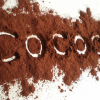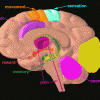Hi
Since GABA and glutamate are the most common neurotransmitters in the nervous system, I was reading up on their physiology.
I understand that we often strive to stimulate the activity of cholinergic receptors, by means of alpga-gpc, racetams and so forth.
To me, this is completely understandable, being that glutamate is an excitatory neurotransmitter.
However, GABA is an inhibitory neurotransmitter.
Why would we wan't to increase its activity?
Wouldn't that depress the nervous system and many of the brain-regions implicated in memory and concentration?
Wikipedia:
GABAergic Drugs
- GABAA receptor ligands
- Agonists/Positive allosteric modulators: alcohol,[43][44][45] barbiturates, benzodiazepines, carisoprodol, chloral hydrate, etomidate, glutethimide, L-theanine, kava, methaqualone, muscimol,neuroactive steroids, z-drugs, propofol, scullcap, valerian, volatile/inhaled anaesthetics.
Others: GABA (itself), L-glutamine, picamilon, progabide, tetanospasmin.
- How can something with the same mechanism of action as alcohol have nootropic properties?!
Something I'm probably missing and haven't found any good information are the locations of their inhibitory/excitatory action.
But maybe someone can put this into layman's terms for me?
Why do people striving for increased cognitive performance use substances to enhance both GABA, which is a inhibitory neurotransmitter and glutamate, an excitatory neurotransmitter?
How can an inhibitory neurotransmitter actually increase cognitive performance?
Thank you in advance for helping me sort this out.
Edited by chung_pao, 12 January 2013 - 03:37 AM.
























































